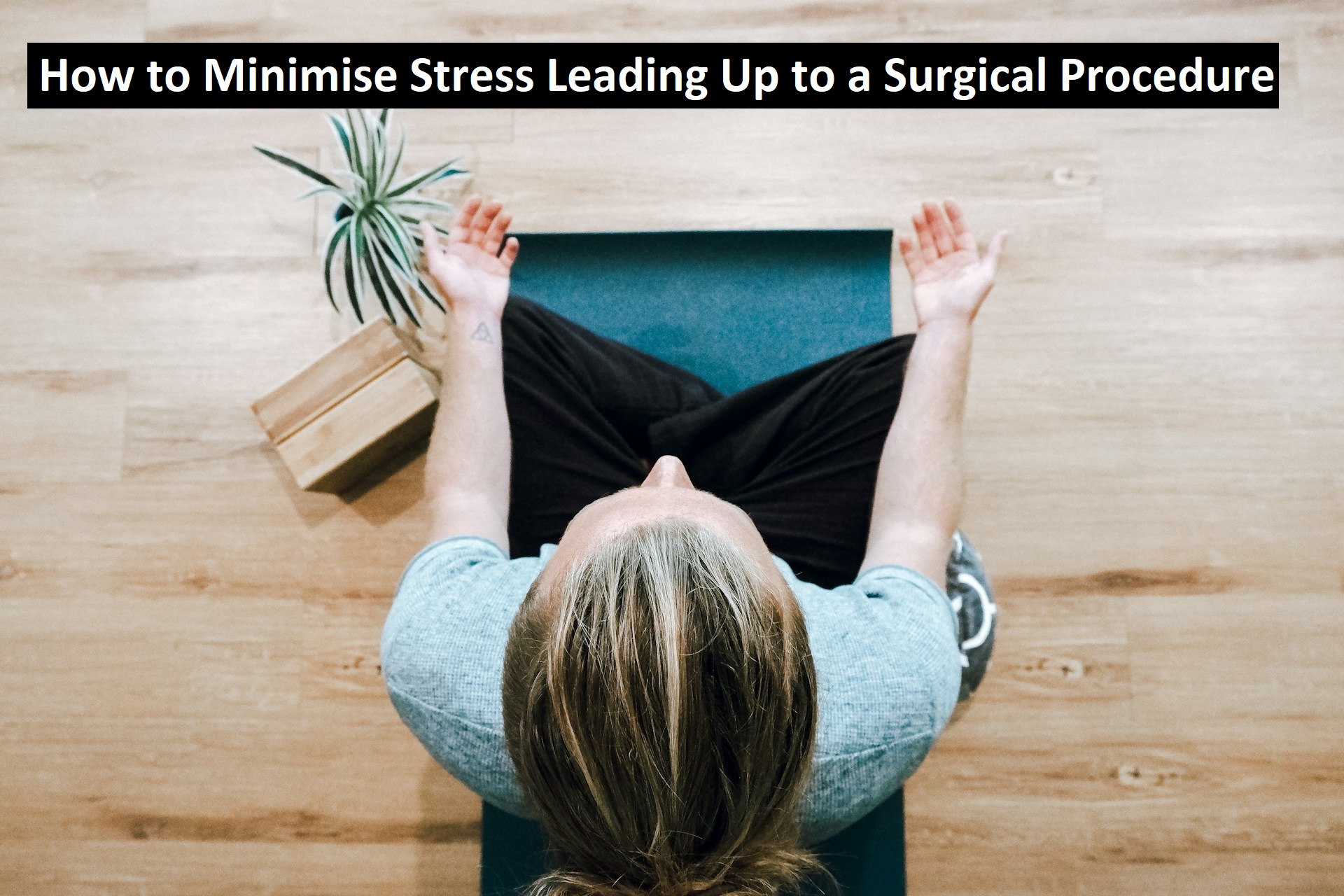How to Minimise Stress Leading Up to a Surgical Procedure
Whether it’s for health or cosmetic reasons, undergoing a surgical procedure can be a stressful time as we build up and await a big event in our lives. Pain, time away from home or not going as planned can all be reasons why we feel a sense of dread leading up to surgery. However, there is usually no need to worry, as only 1 in 200,000 surgeries suffers a serious mishap.
Managing your anxiety, thinking positively and developing coping skills can help you better prepare for your surgery and worry less about potential errors. There are many techniques you can use in the lead-up to your surgery so that you have a stressless wait.
In this guide, we will explore how you can minimise stress leading up to a surgical procedure and provide you with the relevant techniques that you can use to keep zen.
Talk to your surgeon
Talking to your surgeon is a proven way to vanquish surgery anxiety. It will help you better understand the surgical procedure, as your surgeon can talk you through the process and ease your mind. For example, if you are having a deep plane facelift, your surgeon can inform you about how the unique process will work and what you can do to prepare for it. This can also help you build a strong relationship with your surgeon so that you can better trust them with the procedure.
Your surgeon can also offer and administer medications that can ease your anxiety in the lead-up to surgery. However, these medications shouldn’t be taken without the correct medical advice.
Follow pre-surgery instructions
Your doctor or surgeon should give you pre-surgery instructions a couple of months before your procedure to help you prepare for it. This can range from filling your mind with tasks to do to make you forget about the upcoming surgery or taking steps to make sure you’re in the best condition for your procedure.
There are a few simple things you can do in preparation for your procedure, such as:
- Packing your bag in preparation for your hospital stay
- Preparing a ‘recovery area’ in your home to aid you with movement
- Putting essential items in a place that is easy to reach
- Having someone readily available to aid you in your recovery
Yoga & meditation
Both yoga and meditation can go hand-in-hand and can help you eliminate or ease anxiety in the build-up to your surgery. Deep breathing techniques practiced in yoga and meditation can activate the body’s relaxation response, counteracting any stress you may feel. One method you can use while meditating is focusing on the present moment. This way, you don’t think about the future and worry about the surgery.
You can improve your sleep quality with proper yoga and meditation practices. This can be very beneficial for pre and post-surgery health. Having better sleep is a proven way to be less stressed, as your mood will improve as a result. If you are partaking in yoga, you must choose the right practice for you.
Seek support from family and friends
Perhaps one of the most important resources in your life is your family and friends. Receiving support from them can help you with various difficulties or stresses in life, including surgery stress. They can help you enforce positive thinking and give you more confidence in your procedure.
This can be particularly helpful when you have a family member or friend who has gone through a surgical procedure before. They can talk you through their process and inform you on how their pre and post-surgery went, which can help ease your mind.
Read: Financial Zen: Taming Money Stress Before It Tamps You Down
Join a support group
Support groups are available for a wide range of issues to help people overcome their anxieties or stresses in life. There are many support groups out there for surgeries, which help people voice their concerns and fears regarding their upcoming surgery. It can be a great way to overcome any worries you have about the experience.
The group environment allows you to freely ask questions that you might be uncomfortable asking in other settings. You will often find that people will have answers to these questions, which will ease your anxiety.
Have a post-operative plan in place
Planning for the future is a great way to keep your mind at ease and look past an event that is causing you stress and anxiety. You should consult your doctor on what you should do after your surgery to ensure that you have a well-structured plan in place. It’s important to understand the recovery timeline, potential restrictions, medications, pain management strategies and follow-up appointments. There are post-operative general instructions that you should follow.
You should also make sure that you have proper transportation in place after your surgery or hospital stay is complete, as well as organise someone to help you with your post-surgery recovery. Informing your family and friends is the best solution to this.
Final Thoughts
While surgery can be daunting, remember that advancements in medicine have made procedures much safer. Even complex surgeries like piezo rhinoplasty, which reshapes the nasal bones with ultrasonic vibrations, boast high success rates. By following these tips and maintaining open communication with your doctor, you can approach your surgery with confidence and minimise preoperative stress.

